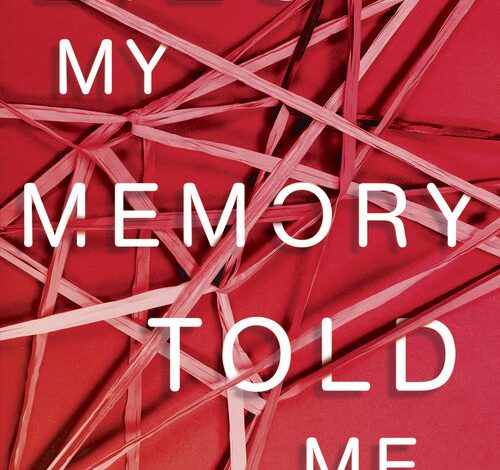 Readers of M.T. Anderson and Ben Oliver will likely appreciate Sacha Wunsch’s recent release, Lies My Memory Told Me. This dystopian thriller follows the story of quiet, sixteen-year-old Nova Reynolds and her friends Andi and Kade as they work to solve the mystery of what Experion Enterprises is attempting with their new technology called Enhanced Memories.
Readers of M.T. Anderson and Ben Oliver will likely appreciate Sacha Wunsch’s recent release, Lies My Memory Told Me. This dystopian thriller follows the story of quiet, sixteen-year-old Nova Reynolds and her friends Andi and Kade as they work to solve the mystery of what Experion Enterprises is attempting with their new technology called Enhanced Memories.
Enhanced Memories (EM) are originally created to be “nothing but good,” a magical solution to safely giving people access to experiences to enhance their quality of life: travel without the expense, a lived experience that delivers empathy and nuances of living another life, and ultrarealistic entrainment without the risk and danger—whether a hot air balloon ride, bungee jumping, zip lining, or even a walk through a haunted house.
In this “brave new world,” EM isn’t a cure for ignorance, but acceptance and understanding have made great strides since EM’s release. With EM, a person could also “download” instructions on how to fix a sink or change a tire, making the experience part of individual memory. EM is further celebrated for improving mental health, reducing drug and alcohol addiction, and preserving the memories of Alzheimer’s and dementia—even amnesia—patients.
Andie, who credits EM for helping people understand her as she transitioned, also believes that EM will enable people to get a full education in half the time. “Why would you bust your ass trying to learn something new when you can buy a memory from someone who already understands it?” (34).
Kade, on the other hand, is a critic of EM—favoring real memories instead. He wants to experience something first hand—the good, the bad, and the ugly. Unique, interesting, and fun-loving, he’s a “do what means something to you, not because of what other people will think of you” kind of guy (66).
As I read Wunsch’s book, I was reminded of Marshall McLuhan, who is considered by many to be the first father and leading prophet of the electronic age. McLuhan spent his career attempting to understand and explain the effects of technology as it related to popular culture. He examined how technological extensions have the effect of amputating or modifying some other extension. An example of an amputation would be the loss of archery skills with the development of gunpowder and firearms.
McLuhan believed that mankind has always been fascinated and obsessed with these extensions, but too frequently we choose to ignore or minimize the amputations. Flooded by technology and enjoying the luxuries it provides as it makes life easier or more pleasurable, we neglect caution and fail to examine the unintended consequences. Under the influence of EM, what happens to day dreaming, the imagination, and the value of real experiences?
What starts out as harmless—nothing more than a tool—begins to take over the lives of many in the form of addiction as people look for the next adrenaline rush, the next experience, or the next big high.
Then, there’s the niggling suspicion that something more sinister is going on. Where do these memory discs come from? Are desperate people willing to sell them at any cost or is someone stealing the memories on some kind of black market?
Nova notices a certain uneasiness in various people, including Clyde, one of the elderly residents at Golden Acres where she works. Clyde describes a “weird energy in the world . . . a disconnection” (198). Nova refers to it as a comfort with loneliness. “Maybe we are just more comfortable with the loneliness than we are with the uncertainly of putting ourselves out there” (198).
Just as people today are becoming “addicted” to their phones and to social media platforms, those in Wunsch’s novel are choosing EMs over human interaction and genuine experiences. Some businesses are losing money—like the travel industry, ski hills, and skating rinks. Nova also wonders about the impact EM might have on degrading memory and on reality. After all, if you didn’t remember something, was it even real?
The more Nova—whose parents invented the technology—discovers about EM, the more she questions the safety and legality of it. EM—this “bright shiny thing” that has done so much good for people—is suddenly losing its luster.
- Posted by Donna

